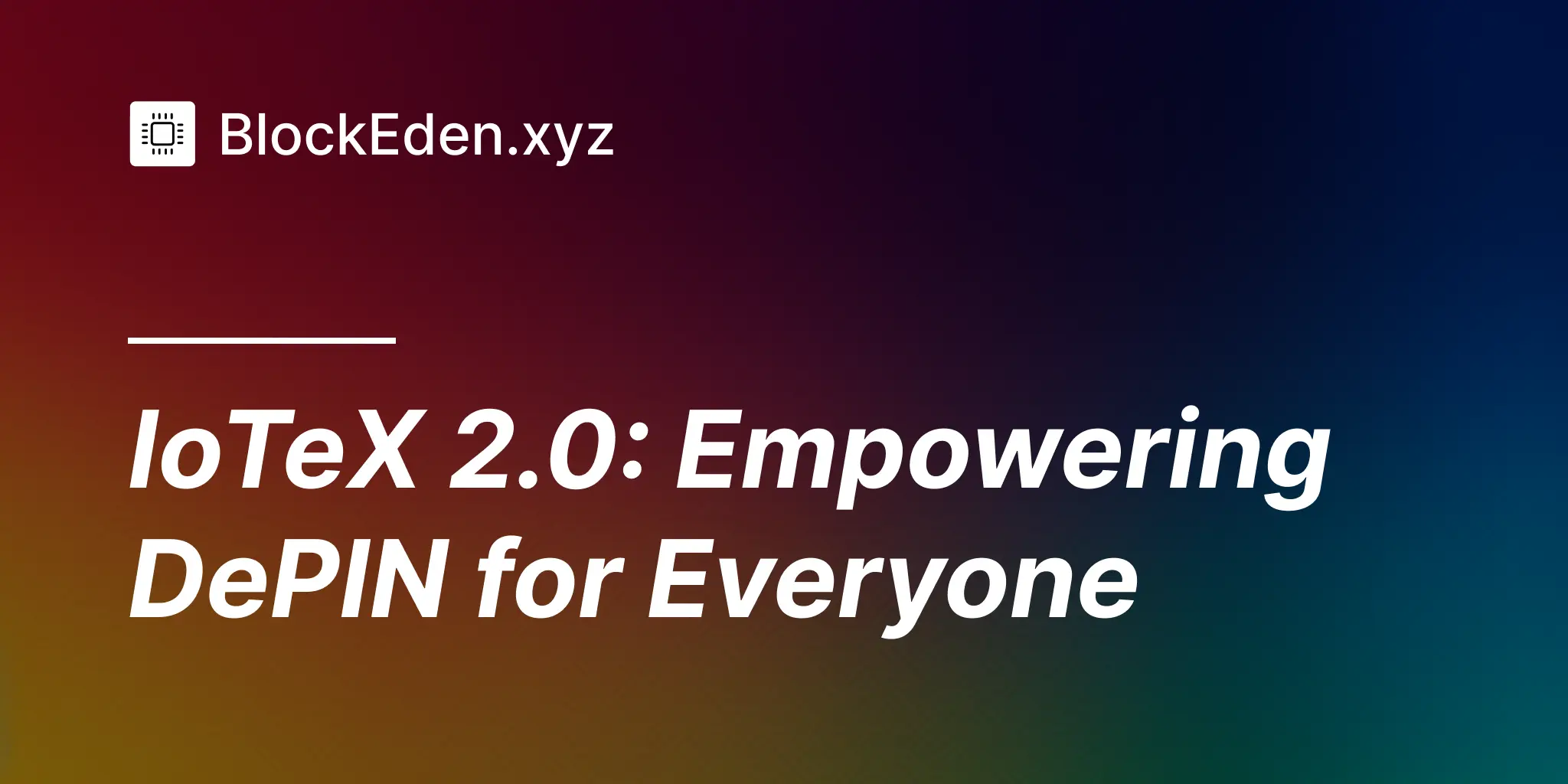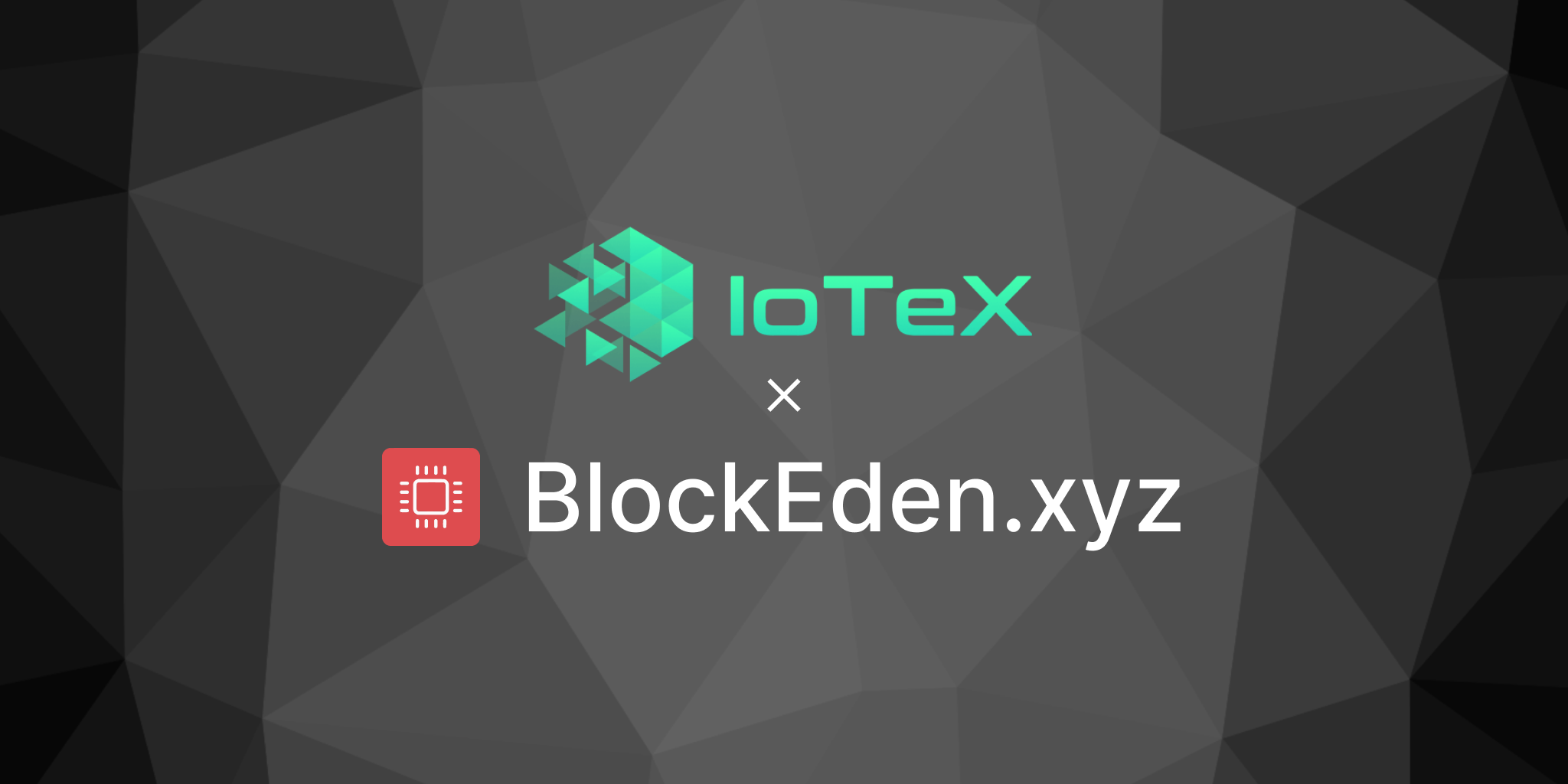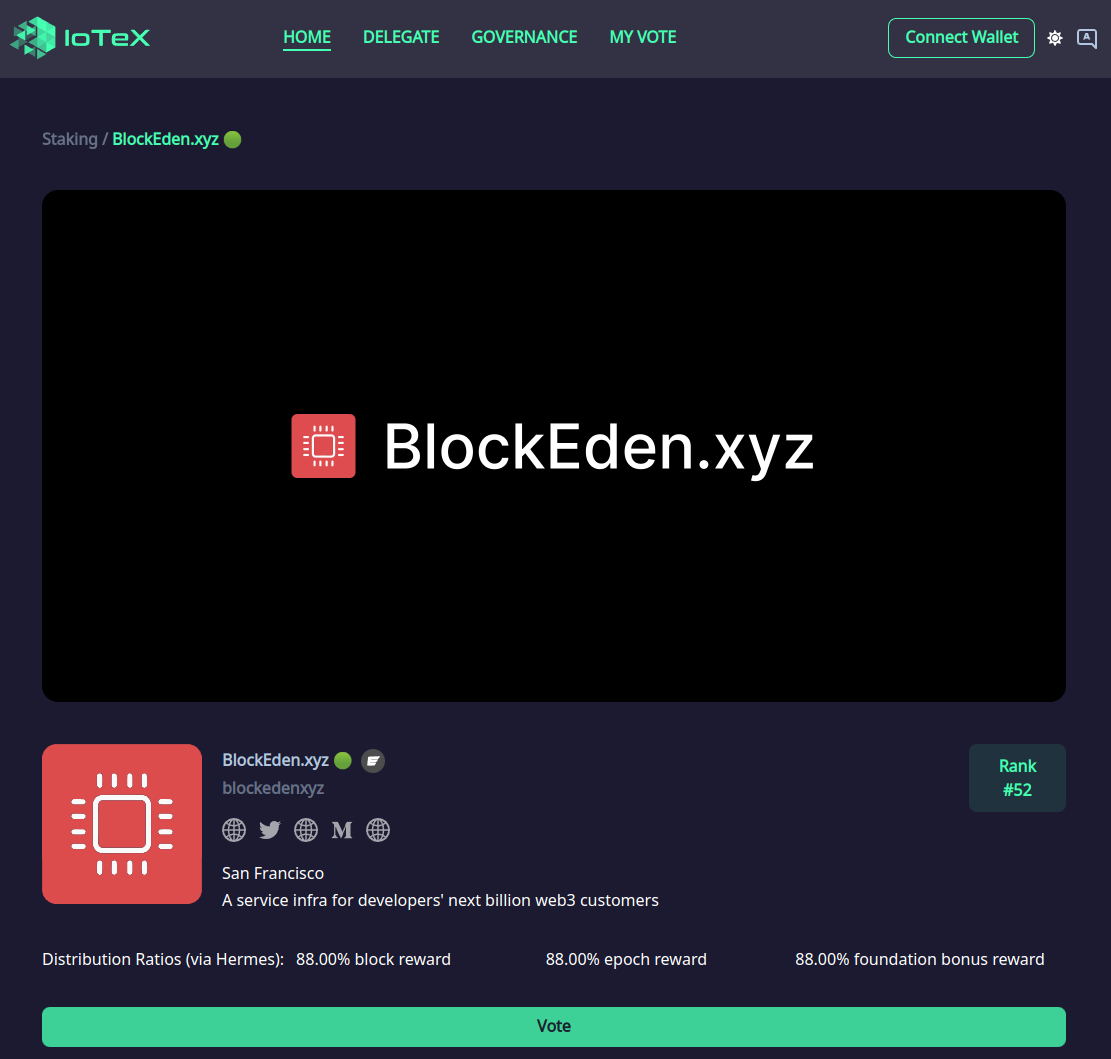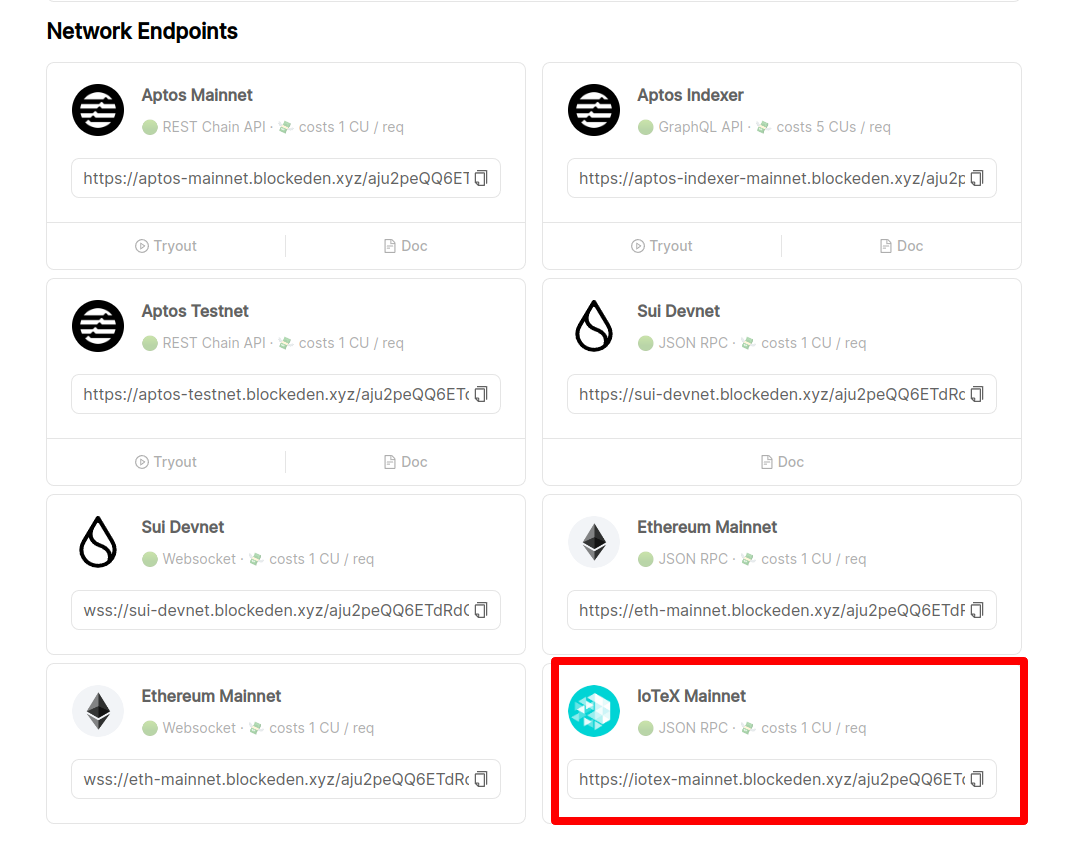IoTeX 2.0: Empowering DePIN for Everyone
Decentralized physical infrastructure network (DePIN) is emerging as a transformative force in the Web3 landscape, offering a new paradigm for building, operating, and managing physical infrastructure networks. However, many DePIN startups face significant challenges due to a lack of funds and technical competence. IoTeX 2.0 aims to address these challenges with a suite of innovations designed to support the DePIN community in realizing the vision of "DePIN for Everyone!".

Core Innovations of IoTeX 2.0
-
Tokenomic Design:
- A comprehensive utility for IOTX tokens within the modular DePIN infrastructure.
- Inflationary staking rewards, deflationary burning mechanisms, and growth incentives to maintain a balanced token supply.
-
Modular DePIN Infrastructure:
- Modular Security Pool (MSP): Provides a unified trusted layer for DePIN infrastructure modules through restaking.
- W3bstream: A decentralized multi-prover network for DePIN verification, supporting various validity proof approaches.
- ioID: A unified identity system managing and securing machine-to-machine and machine-to-person relationships.
- ioConnect: A universal embedded SDK empowering device abstraction and facilitating smart device interaction.
- ioDDK: A chain SDK allowing DePIN projects to provision self-sovereign application chains, inheriting IoTeX L1 security.
-
Public Goods:
- Tools like DePINScan and DePIN Liquidity Hub to support awareness, usability, and liquidity for DePIN projects.
The Importance of DePIN
DePIN aims to disrupt traditional industries and public utilities, which are often monopolies controlled by centralized corporations and governments. By leveraging blockchain technology, DePIN can bring transparency, trust, and innovation to physical infrastructure and public utilities. This new model allows people to contribute to and build equity in real-world infrastructure networks, overcoming financial and logistical barriers to entry.
The DePIN Landscape
DePIN is a collective effort of numerous projects across the globe, focusing on decentralizing and improving physical infrastructure. The DePIN sector includes:
- Physical Resource Networks: Produce non-fungible resources relying on location-dependent hardware.
- Digital Resource Networks: Produce marketplaces for fungible resources, relying on location-agnostic hardware.
- Infrastructure and Tooling: Facilitate growth and provide off-the-shelf capabilities for DePIN applications.
The DePIN Tech Stack and Its Challenges
The DePIN tech stack requires an end-to-end architecture connecting the real world to the blockchain. This includes layers like hardware abstraction, connectivity, sequencer, data availability, long-term storage, off-chain computing, blockchain, identity, and governance. Developing this complex stack presents high barriers to entry, particularly for emerging markets.
IoTeX 2.0: A Modular Approach
IoTeX 2.0 introduces a modular infrastructure, allowing DePIN projects to construct a tech stack that suits their specific needs. This approach supports both large and small teams by providing comprehensive and purpose-built solutions. Key components include:
- Modular Security Pool (MSP): Ensures unified and end-to-end trust across DIMs, leveraging staked assets from well-established blockchains.
- W3bstream: Facilitates decentralized off-chain computing with multiple provers, enhancing the scalability and efficiency of DePIN applications.
- ioID and ioConnect: Simplify identity management and hardware abstraction, respectively, enabling seamless integration of smart devices into DePIN projects.
- ioDDK: Supports the launch of self-sovereign L2 blockchains, expanding the capabilities of DePIN projects.
Future Outlook
IoTeX 2.0 aims to create a new world where physical infrastructure networks are decentralized, transparent, and equitable. By leveraging cutting-edge technologies like zero-knowledge proofs, AI, and blockchain, IoTeX 2.0 envisions a future where smart devices, autonomous systems, and digital resource marketplaces operate seamlessly and securely. This vision empowers everyday people to contribute to and benefit from the modernization of global infrastructure, ensuring "DePIN for Everyone!".
Summary
IoTeX 2.0 is a significant milestone in the evolution of the IoTeX network, addressing the challenges faced by DePIN startups and driving the next phase of growth for decentralized physical infrastructure networks. With its innovative modular infrastructure, comprehensive tokenomics, and commitment to public goods, IoTeX 2.0 is poised to lead the DePIN movement and empower builders worldwide. Are you an IoTeX developer? BlockEden.xyz offers IoTeX RPC at https://blockeden.xyz/api-marketplace/iotex.


